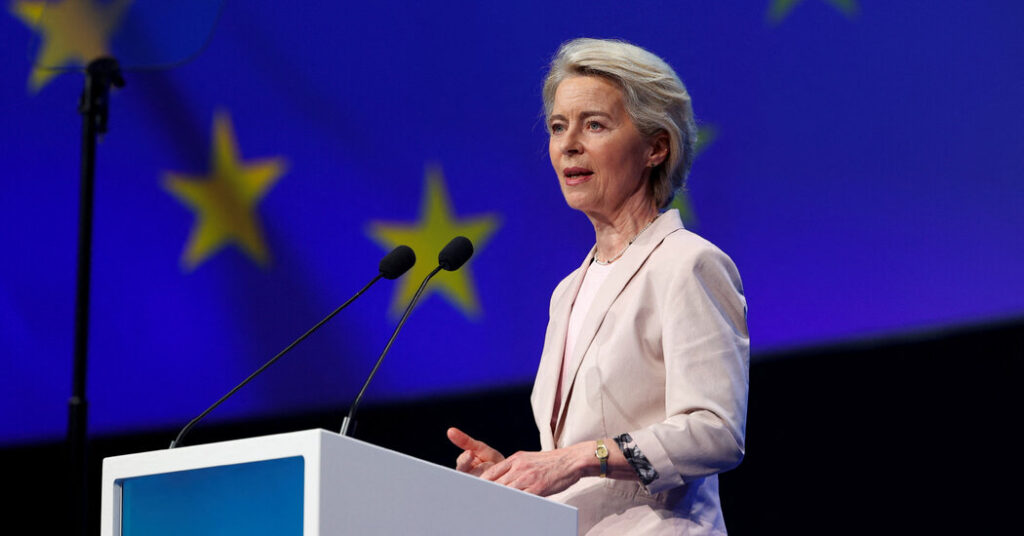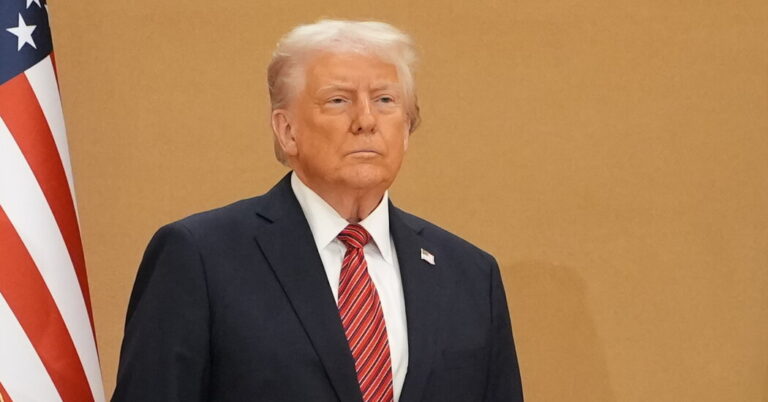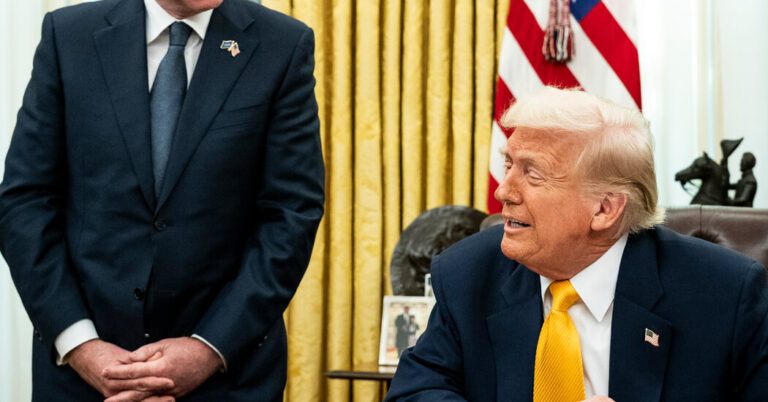
In a judgment that could help to shape how transparent the European Union must be on matters of public interest, judges on Wednesday said the bloc should not have denied a journalist’s request for a key set of text messages exchanged as the bloc negotiated for a coronavirus vaccine.
The ruling was issued by the European Union’s second-highest court, the General Court, in Luxembourg, in a case brought by The New York Times against the European Commission in 2023.
The case centered on the commission’s decision not to release text messages between Ursula von der Leyen, the president of the commission, and Pfizer’s chief executive, Albert Bourla, which the two had exchanged in 2021 while striking a deal for Covid-19 vaccines.
The legal question at the core of the case was whether commission text messages are considered documents under European Union law, and in what cases they potentially should have been retained and disclosed. The commission argued that text messages were “short-lived” and so were not covered by the bloc’s transparency requirements.
“The Commission cannot merely state that it does not hold the requested documents but must provide credible explanations enabling the public and the Court to understand why those documents cannot be found.” the court’s judges said in their decision.
“The Commission has also failed to explain in a plausible manner why it considered that the text messages exchanged in the context of the procurement of COVID-19 vaccines did not contain important information,” they added.
The European Commission could now appeal the case, should it choose to do so.
The case raised questions about how much information the public should get about negotiations that cost taxpayers money and shape public policy, and could also set a legal precedent for what is considered an official document in the European Union.
It also could have implications for the European Commission’s reputation for disclosure at an important moment. Ms. von der Leyen began her second five-year term as leader of the commission, the bloc’s executive arm, late last year, and she has made standing up for core values like democracy and transparency key to her image.
“It’s a case about transparency, but ultimately, it’s a case about accountability,” said Nick Aiossa, director of the group Transparency International E.U., an anti-corruption group.
The ruling is the culmination of years of back-and-forth.
The Times reported in April 2021 that Ms. von der Leyen and Dr. Bourla had been exchanging texts and calls for a month as they were negotiating to secure E.U. access to the vaccines.
After reading that article, Alexander Fanta, then a reporter at a German news outlet, filed a freedom-of-information request with the commission asking for the text messages. He was not given them. The E.U.’s Ombudsman criticized the move, arguing that the commission had engaged in maladministration by not adequately searching for the text messages in response to Mr. Fanta’s request.
But the commission did not back down.
The Times and its former Brussels bureau chief, Matina Stevis-Gridneff, followed up with a similar request for the messages. When access to messages was refused, The Times took the commission to court, filing a suit in early 2023.
Throughout the lawsuit, the commission has maintained that the text messages did not have to be saved and disclosed, arguing that because the text messages are short-lived by nature, they are not subject to the European Union’s retention and transparency rules.
Commission representatives have not said whether anyone at the commission other than Ms. von der Leyen at any point reviewed the contents of the messages. At one point it said that it could not find the relevant messages.
And Paolo Stancanelli, a lawyer representing the commission, said during a hearing in November that “I am not able to tell you until when they existed, or if they still exist.”
When both sides laid out their cases in Luxembourg at that hearing last year, lawyers for The Times argued that the European Commission actively encouraged its staff members to use disappearing text messages in communication.
The messages drew attention in part because they were about a subject of great public interest — the deal for a Covid vaccination.
The vaccine agreement with Pfizer was one of the biggest procurement contracts in European Union history. It was hailed by many as a success; through it, the bloc managed to secure 1.8 billion doses, enough shots to push up vaccination rates across the European Union.
Still, the commission has been plagued with transparency complaints surrounding the negotiations for the agreement.
The commission has published redacted purchasing agreements but has not disclosed the full terms of the contracts it secured for Covid vaccines. It has said it needs to strike a balance between making information public and satisfying the legal requirements of the vaccine contracts.
The text message issues only served to deepen concerns about disclosure.
“Transparency and public access to government documents play a vital role in democratic oversight,” Bondine Kloostra, a lawyer for The Times, said in her opening argument at that 2024 hearing in the case.




